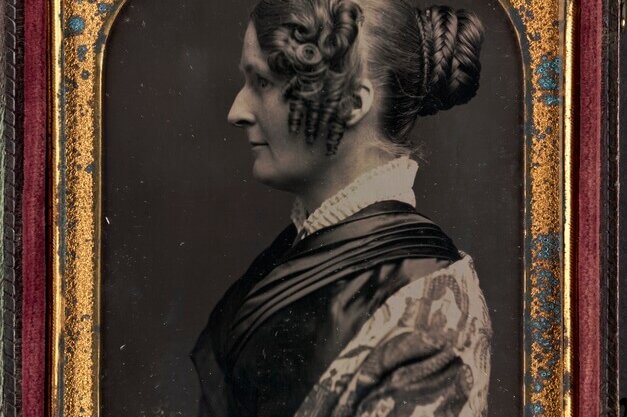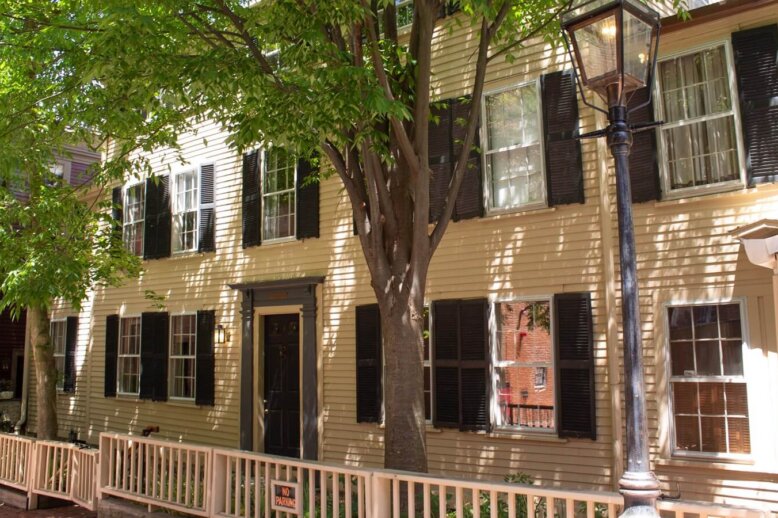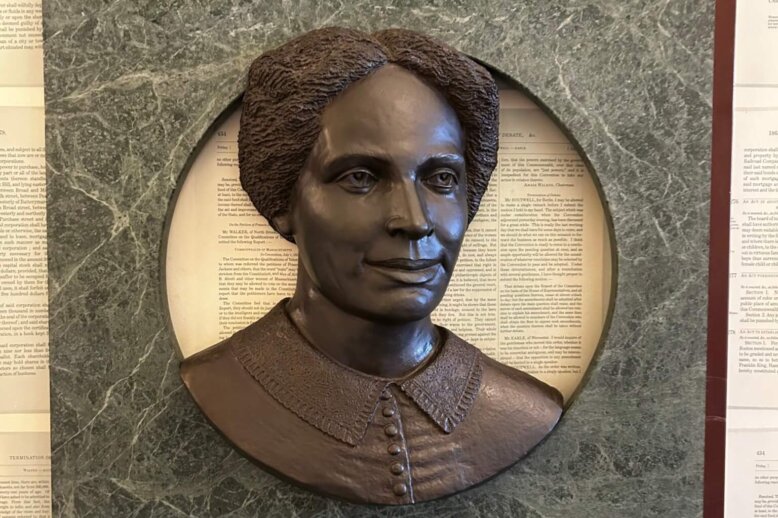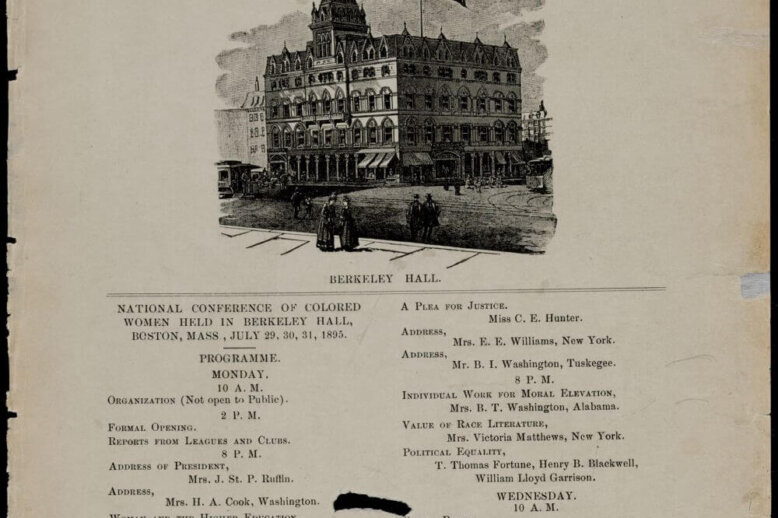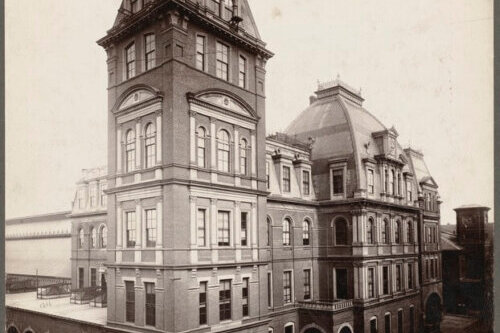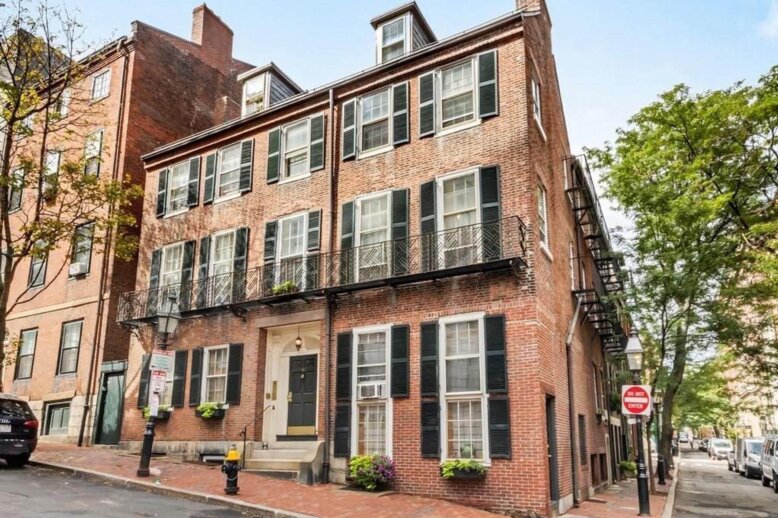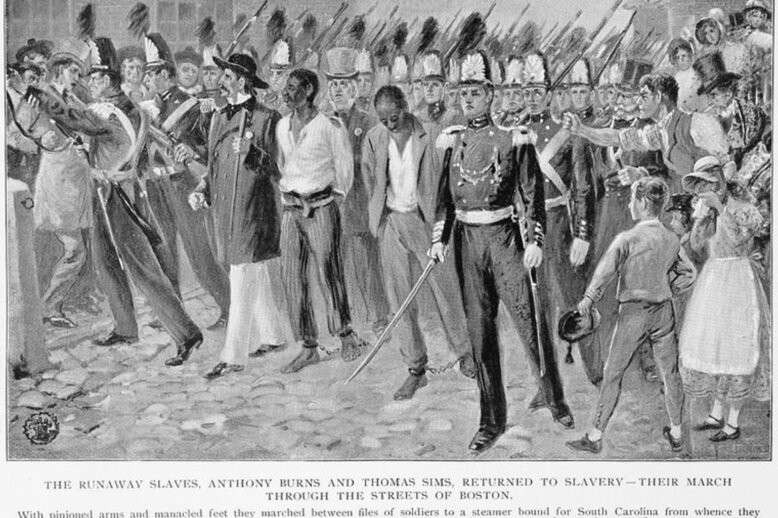Era: West Boston(~1780-1880)
Black Community on Beacon Hill, Brahmins on the flat
Maria Weston Chapman The Boston-based anti-slavery activist, Maria Weston Chapman (1806-1885), was a leading voice in the abolitionist cause and an advocate for women’s participation. As both a dedicated abolitionist and family woman, “Captain” Chapman as she was known, pushed hard for what she believed in. As a founding member of the Boston Female Anti-Slavery…
The Yellow House at 3 Smith Court One of the few remaining wooden structures on Beacon Hill, the long and narrow house at 3 Smith Court now stands opposite to the Museum of African American History. Over two centuries, the house has been the home to titans of the abolition movement and witnessed a constantly…
The Omnibus: Boston’s First Horse-Powered Public Transit System Boston established its first form of urban public transit—a large horse-drawn carriage known as the omnibus – in 1833. The omnibus was an early step in the creation of Boston’s public transportation system. With lines crossing the West End, and a hub on Brattle Street, the omnibus…
“The Opera Ejection Case”: Sarah Parker Remond, The Old Howard, and Segregation in Antebellum Boston When abolitionist and early civil rights advocate Sarah Parker Remond (1824-1894) was kicked out of an opera at the Howard Athenaeum due to her race, she went to the courts seeking justice. Her case brought issues of segregation and discrimination…
For Her Race or Her Sex? Josephine St. Pierre Ruffin, Women’s Suffrage, and Civil Rights Josephine St. Pierre Ruffin (1842 – 1924) was involved in the abolitionist cause, women’s suffrage, and the fight for equal rights for Black Americans. But due to the shifting politics of the women’s movement, Ruffin and other Black suffragists faced…
From Canal to Rail: The Birth of the Boston & Lowell Railroad The Boston and Lowell Railroad, New England’s first passenger train service, built its first Boston depot on Lowell Street in the West End. It would help replace the Middlesex Canal as the primary means to move people and goods in and out of…
Salome Merritt: Suffragist and Doctor of Beacon Hill Salome Merritt MD (1843-1900) was a pioneering female doctor, suffragist, and activist who lived for several decades on Beacon Hill. Merritt was dedicated to improving the lives of her neighbors through scientific education, direct aid, and advocating for social and political change. A descendent of an old…
The Fugitive Slave Laws in Boston: Part 2, 1850–1855 This article, part 2 in a series on fugitive slaves in Boston, explores the new legislation passed during the lead up to the Civil War which expanded the reach of the fugitive slave law, and the reactions of Bostonians to slave catchers targeting residents. Part 2…


